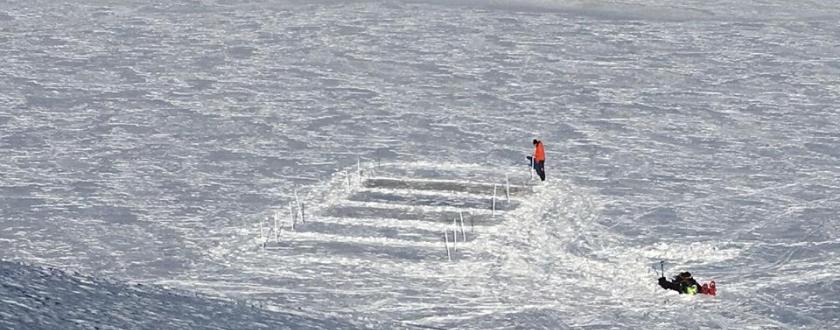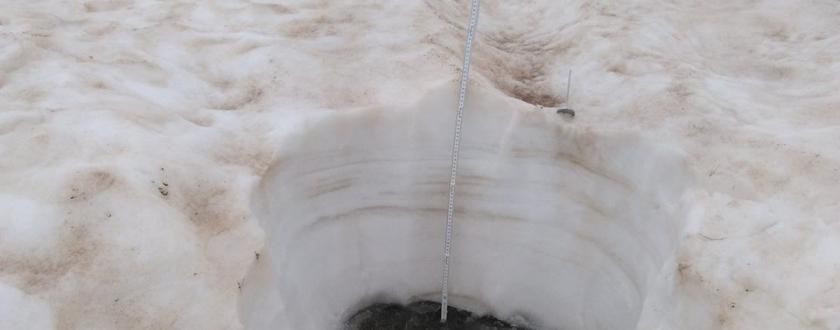AERONIVAL. Saharan dust and black carbon deposition in the Pyrenees and Sierra Nevada: does it favour premature snowmelt?
Description of the case study
AERONIVAL is a research project led by the Geological and Mining Institute of Spain to assess the impact of atmospheric deposition of Saharan dust and soot on snow in the Pyrenees and Sierra Nevada by studying the relationship between these depositions and premature snowmelt.
There is already scientific evidence that the deposition of Saharan dust affects snowmelt. The first challenge facing the project is to establish the extent of the phenomenon. The results should be used to improve hydrological planning as well as management in snow-dependent sectors such as mountain and snow tourism.
The comparative study of two mountain ranges—the Sierra Nevada and the Pyrenees—facilitates an in-depth approximation of the phenomenon. This is essential for improving knowledge and subsequently transferring this knowledge to other mountain areas.
The research uses periodic sampling of different study areas to build a microphysical and structural picture of snow cover, focussing on the role of certain atmospheric particles therein.
Though very preliminary, the results show that the deposition of Saharan dust accelerates snowmelt under certain conditions. According to these non-definitive results, the Saharan dust deposition event of April 2018—the most intense of its kind in the 21st century—has led to a significant decrease in the duration of snow cover of 6 days in the Sierra Nevada and of 12-15 days in the Aragonese Pyrenees during the 2017-2018 season.
Given this project constitutes baseline research, no specific measures or solutions have been proposed as yet. However, the results are relevant in terms of the future management of the region and its economic activities. The study provides new data on the effects of climate change at a regional level (changes to the energy balance in mountain zones) and on hydrological planning (snow reserves have not lasted as long as would be expected).
Case study developed, implemented and partly funded as a climate change adaptation measure.
Geological and Mining Institute of Spain, Pyrenean Institute of Ecology, University of Granada, University of Córdoba, Ebro Hydrographic Confederation, Ordesa y Monte Perdido National Park, Sierra Nevada National Park, National Meteorological Agency of Spain (AEMET).
Additional Information
The Aeronival project is promoted by the Geological and Mining Institute of Spain and coordinated by the researcher Jorge Pey in collaboration with the Pyrenean Institute of Ecology, the University of Granada and the University of Córdoba. It is also supported by the Ebro Hydrographic Confederation, the Ordesa y Monte Perdido National Park, the Sierra Nevada National Park and AEMET.
Success: the research is being conducted during a year (2018) which has experienced one of the most intense Saharan dust events seen in mountain ranges on the Iberian Peninsula, enabling a detailed analysis of its consequences.
Limiting: the research should be continued in subsequent years to facilitate a more detailed analysis of the effects in different seasons. This study should guide future research into the effects of Saharan dust episodes on river-basin level hydrological planning.
The total project budget of €44,728.60 is entirely funded by grants from Fundación Biodiversidad. It also has institutional support from the scientific bodies involved (scientific staff).
The project has financial support in the form of grants from Fundación Biodiversidad (part of the Ministry for Ecological Transition) for climate change adaptation projects (2017).
2017-2018 (6 months - complete)
Reference information
PYRENEAN CLIMATE CHANGE OBSERVATORY
Avenida Nuestra Señora de la Victoria, 8
22.700 - Jaca
Huesca - España
+34 974 36 31 00
info_opcc@ctp.org






